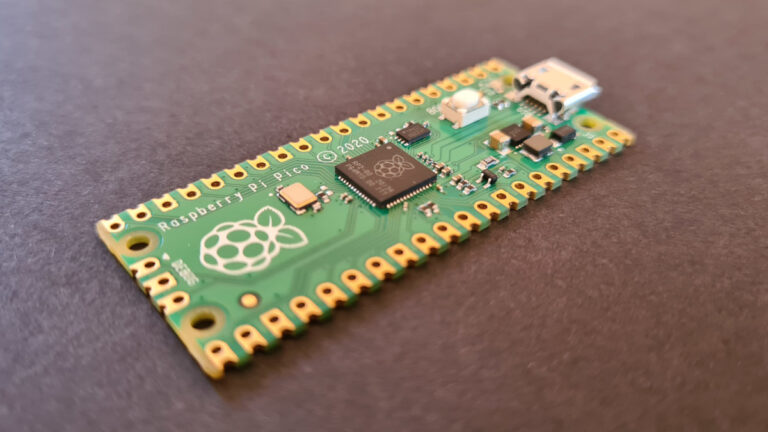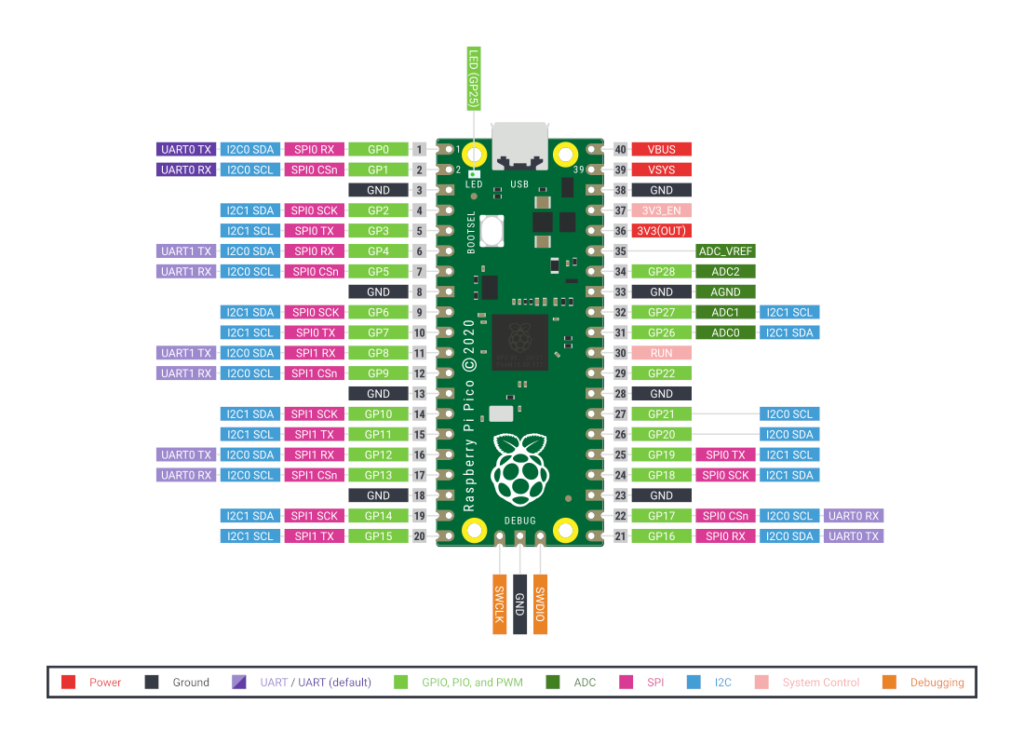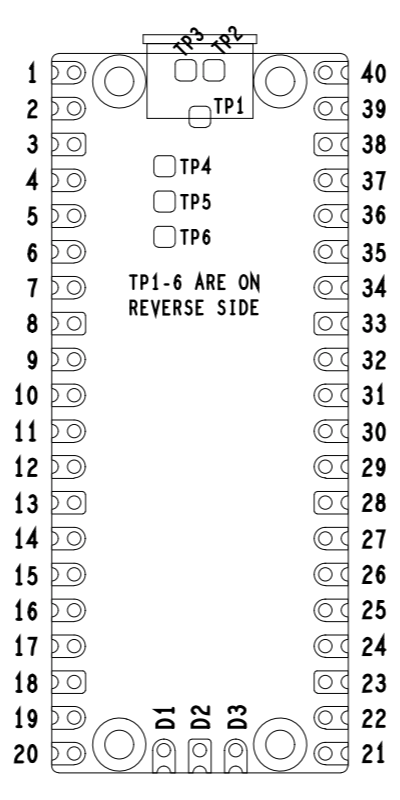Understanding the Pi Pico Pinout is vital to getting the best out of Pi Pico. The Raspberry Pi Pico is a microcontroller board that makes use of the RP2040 chip developed by the designers of the Raspberry Pi.
The Pico can accept 0.1″ pin-headers which can be soldered to the board as required.
Pi Pico Pinout
Many of the pins on the Pi Pico board can provide different features and capabilities.
Pi Pico Physical Pin Numbering
The diagram below shows the pins on the Pi Pico and how they are numbered:
Power Pins
The following pins are related to power:
- PIN40 VBUS (USB input voltage, typically 5V)
- PIN39 VSYS (used to power system, can be in range 1.8V-5.5V)
- PIN36 3V3
The following pins provide ground:
- PIN3
- PIN8
- PIN13
- PIN18
- PIN23
- PIN28
- PIN33
- PIN38
If you look carefully you’ll see that the ground pins have slightly square copper pads.
Test Points
Taking a look at the underside of the Pico board there a six test points. These may be useful for advanced projects.
- TP1 – Ground (close coupled ground for differential USB signals)
- TP2 – USB DM
- TP3 – USB DP
- TP4 – GPIO23/SMPS PS pin (do not use)
- TP5 – GPIO25/LED (not recommended to be used)
- TP6 – BOOTSEL
Official Pi Pico Resources
Finally here are some of the Official resources that are worth taking a look at before using a Pi Pico in your projects.




2 Comments
Is the diagram pin for pin compatible with the 2022 W variant of the Pico?
yes, the pinouts of the Pi Pico and the Pi Pico W are the same.